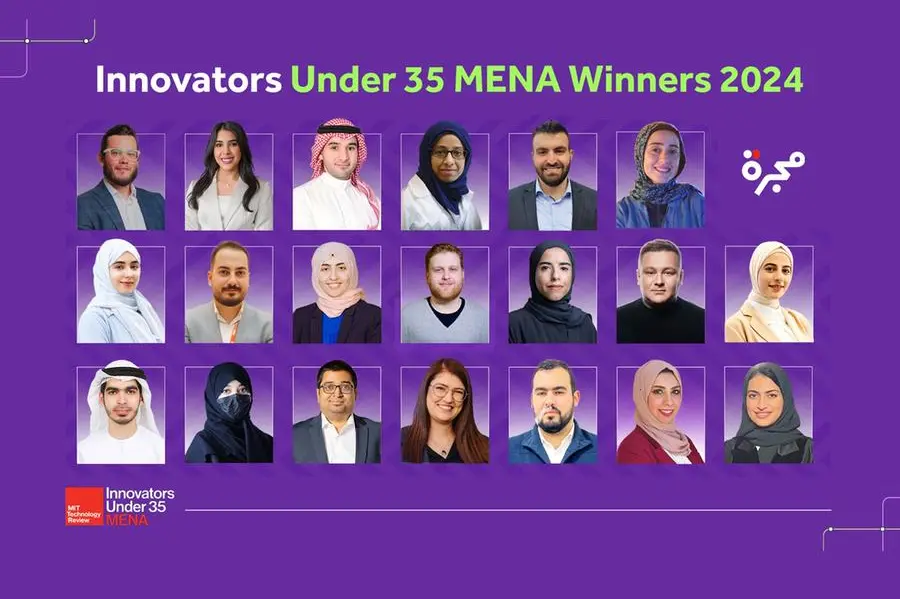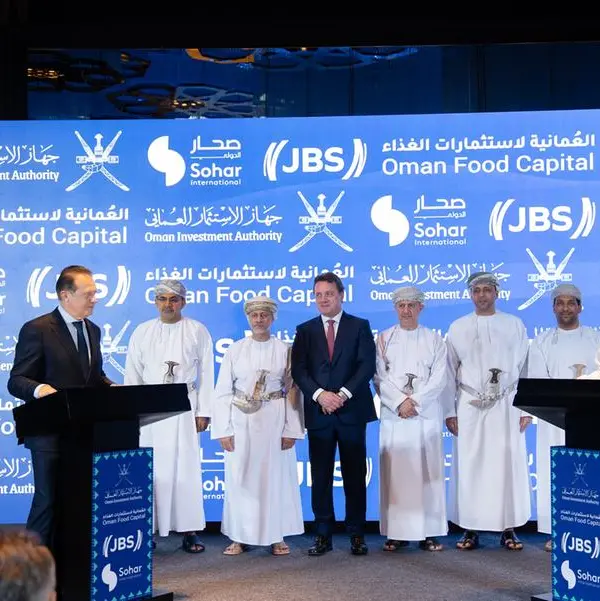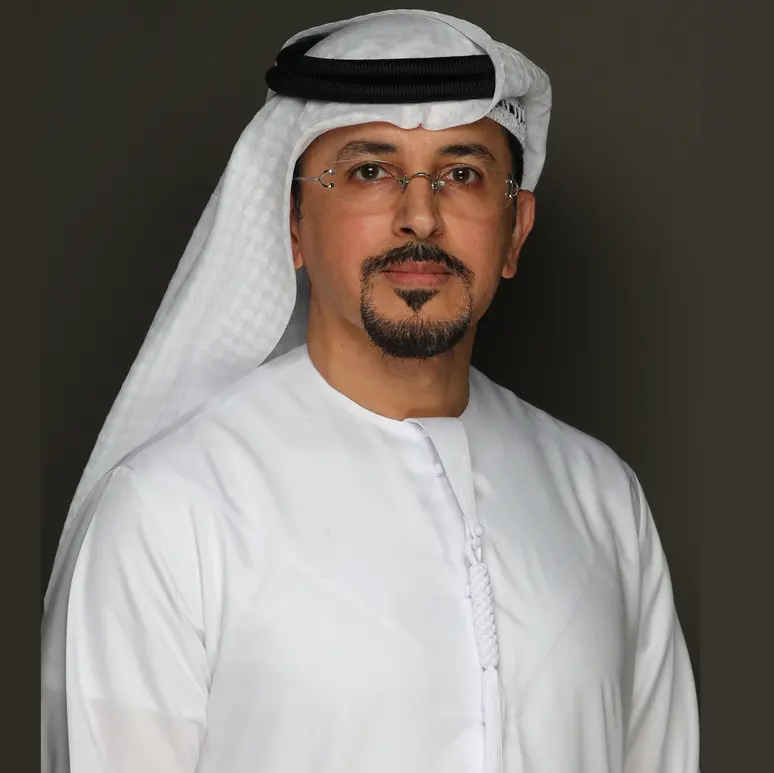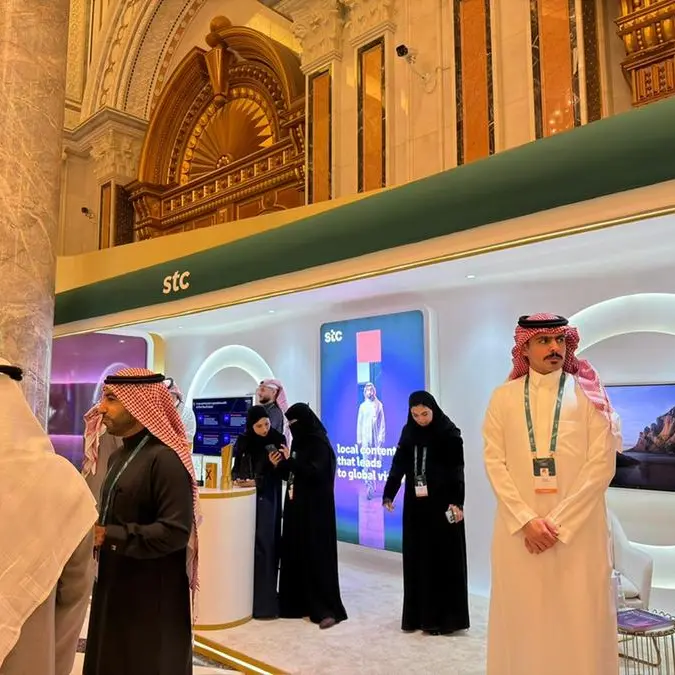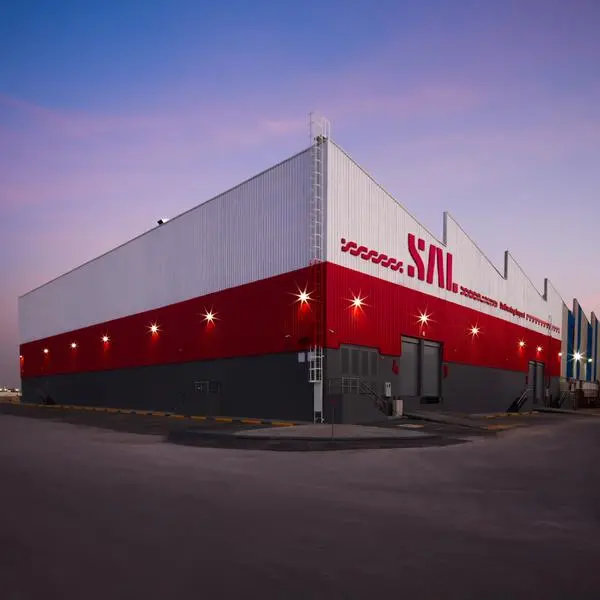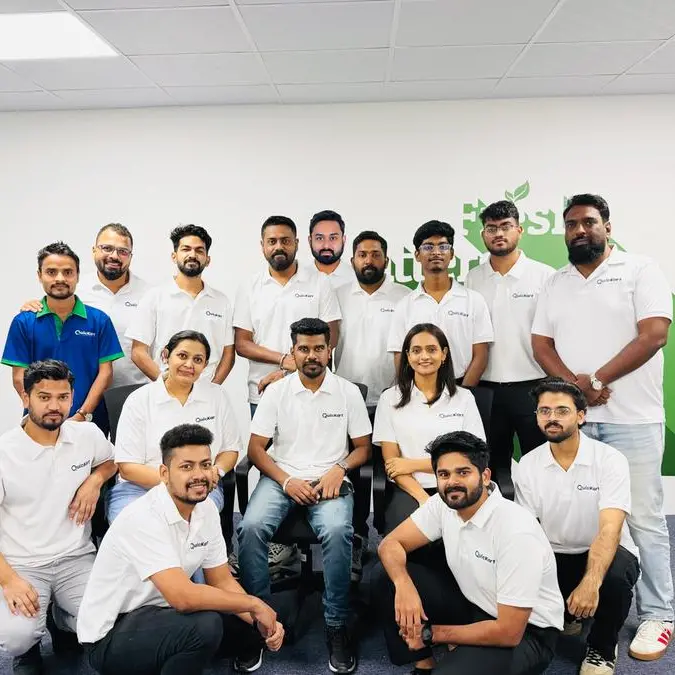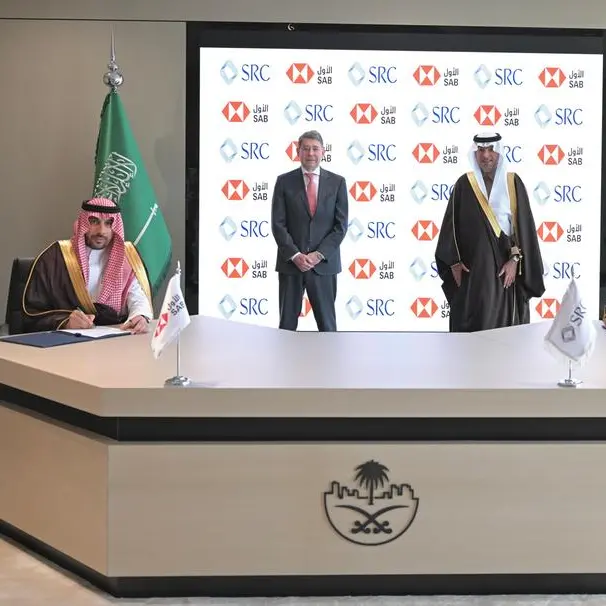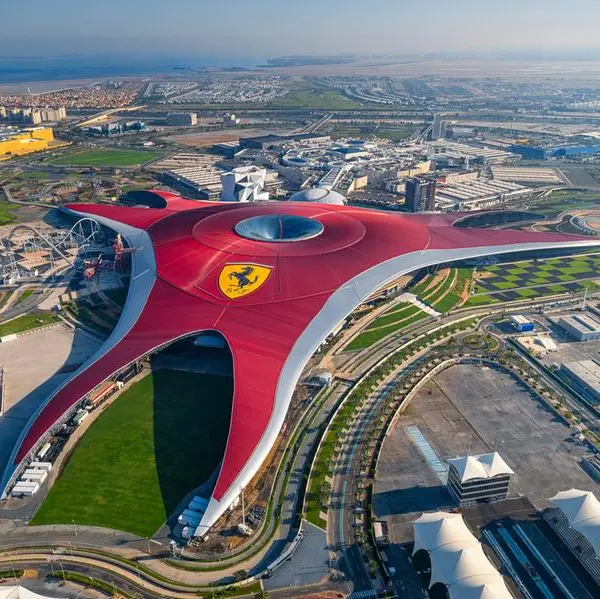PHOTO
Abu Dhabi: MIT Technology Review Arabia has announced the winners of the Innovators Under 35 MENA award for 2024. With the help of the judging panel, 20 innovators were selected to receive the award in recognition of their contributions to innovations that enhance the quality of life and play a significant role in advancing our societies in various aspects. The winners' fields of innovation ranged from technology and biotechnology to computer science, programming, medicine, energy, and the environment.
The evaluation process was conducted by a distinguished panel of 19 independent judges, including technology experts, entrepreneurs, and academics from leading tech companies, research centers, and prestigious global universities.
The Winners of the 2024 Edition of the "Innovators Under 35 MENA" Award
This year's Innovators Under 35 MENA award winners include 20 outstanding innovators from Saudi Arabia, Palestine, Egypt, Lebanon, Qatar, the UAE, Syria, Bangladesh, Russia, and Algeria. These individuals have introduced pioneering ideas and technologies that contribute to the advancement of their societies.
Bassem Al-Shaib: Egypt, Founder of Amber Bio and Stealth Biotech, developed a range of biotechnological and bioinformatics techniques, including ultra-miniature CRISPR systems, RNA editing platforms, and large-scale virus detection methods, providing transformative solutions for genetic diseases, agriculture, climate change mitigation, and global health challenges.
Asrar Damdam: Saudi Arabia, Founder and CEO of Uvera, invented an IoT-supported and UV-based device that extends the shelf life of fresh food products within just 30 seconds without using chemicals.
Mohammed Alamer: Saudi Arabia, Chief Technologist at Aramco, recognized for developing sustainable, cost-effective, and scalable methods for graphene production.
Lamyaa Almemadi: Saudi Arabia, Postdoctoral Research Fellow at MIT, developed a technology to detect and monitor mRNA degradation in vaccines using deep ultraviolet resonance Raman spectroscopy.
Safiya Khalil Alhashmi: UAE, Assistant Professor and Researcher in Mechanical Engineering at Rice University, created a photoreactor technology powered entirely by light to target and molecularly destroy per- and polyfluoroalkyl substances (PFAS) without generating secondary pollutants.
Somaya Albhaisi: Palestine, Fellow in Gastroenterology and Hepatology at the University of Southern California, innovated by integrating digital health tools, AI, and clinical research to revolutionize the prevention and treatment of metabolic-associated fatty liver disease (MASLD) through personalized medical interventions.
Kamil ElKhoury: Lebanon, Postdoctoral Research Fellow at NYU Abu Dhabi, invented "MeniscoGel," a double-linked gel structure 3D-printed and designed to suit individual patient needs, mimicking natural meniscal cartilage and promoting tissue regeneration through enhanced mechanical properties and biocompatibility.
Dhabia Al-Mohannadi: Qatar, Assistant Professor at Hamad Bin Khalifa University and Texas A&M University in Qatar, developed the HyPEC process, which uses photocatalysis to convert wastewater from oil and gas into hydrogen, offering solutions for decarbonization and achieving a circular economy.
Mohammed Awad: Syria, Computer Engineer at Fritek, created a method to convert plastic waste into affordable and eco-friendly 3D printing filaments, promoting sustainability and creative industries.
Bilal Taha: Palestine, Postdoctoral Research Fellow at the University of Toronto, developed the EyeSignals platform to detect emotions using physiological eye signals (pupilometry and gaze tracking) integrated with advanced neural networks for accurate and unbiased emotion assessment.
Reem AlMasri: Syria, Postdoctoral Research Fellow at UNSW, invented a flexible biophotonic sensor for high-precision and wire-free diagnostics of cardiac and neurological diseases.
Taghreed Sindi: Saudi Arabia, Executive Associate Director of Innovation at King Abdullah Medical City, developed an AI-based technology to analyze children's emotions in hospitals, enhancing their care experience with a combination of technology and empathy.
Rawan Omar: Palestine, Postdoctoral Research Fellow at Yale University, created smart, flexible, and biodegradable nanosensors for real-time health monitoring and early disease diagnosis, integrated with IoT and AI for accurate and instant analysis.
Abdulaziz Alzurahi: UAE, Mechanical Engineer at EDGE Advanced Technology Group, developed a new 3D-DIC imaging technique for real-time visualization and analysis of failure in carbon fiber vehicle structures, with applications in aviation and automotive industries.
M. Saiful Bari: Bangladesh, Senior Researcher at the National Center for Artificial Intelligence, SDAIA, developed "Allam," a large Arabic language model AI that preserves linguistic and cultural nuances of Arabic, enabling comprehensive applications in education, healthcare, and government services.
Wafa Ramadan: Palestine, a Postdoctoral Researcher at the University of Sharjah, developed a technique to target the CBP gene regulator to disrupt DNA repair mechanisms, increasing breast cancer cells' sensitivity to chemotherapy while reducing resistance.
Roman Axelrod: Russia, Founder and Managing Partner of XPANCEO, invented a smart holographic contact lens combining extended reality (XR) capabilities, health monitoring, vision enhancement, and secure data features while minimizing device size and environmental impact.
Okba Fergani: Algeria, PhD Candidate at Mohamed Khider University of Biskra, developed an optimization algorithm inspired by Japanese folklore to dynamically enhance renewable energy systems for efficiency and economic feasibility.
Mirna Ghemrawi: Lebanon, Director of Forensic Biology at the Forensic Science Research and Education Center, developed a sequencing-based approach combining genetic and epigenetic markers to revolutionize the analysis of forensic biological evidence.
Maha AlJuhani: Saudi Arabia, Director of Research and Innovation Partnerships at the Ministry of Environment, Water, and Agriculture, invented a method for designing catalysts to reuse nitrogen-containing chemicals, promoting a sustainable industry.
The award criteria include innovators residing in Arab countries or any innovator of Arab origin living anywhere in the world. Having winners from Bangladesh and Russia highlights the region’s ability to attract global talent and provide them with a platform to support their research, innovations, and ambitions, contributing to shaping the future in their respective fields.
Innovators Under 35 is a global prestigious award that honors young innovators from all over the world. Over the years, several famous figures and well-known innovators have received this award in its global editions. Here are some notable names who have received the "Innovators Under 35" award in its global versions: https://www.innovatorsunder35.com/
